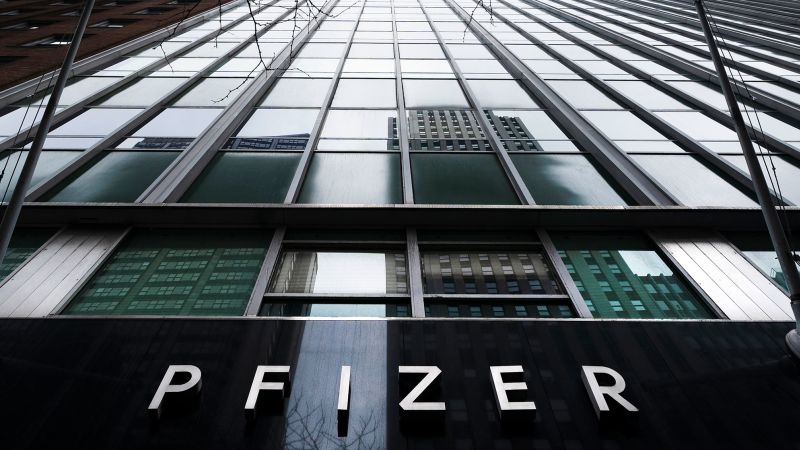Pfizer Wins $10B Metsera Acquisition Expands Obesity Treatment Pipeline

Pfizer Triumphs in $10 Billion Bid for Metsera
Pfizer has secured a $10 billion deal to acquire Metsera, a biotech startup focused on next-generation weight-loss therapies. This victory follows a competitive bidding war with rival Novo Nordisk, whose offer raised significant antitrust concerns with U.S. regulators. Metsera's board favored Pfizer's revised proposal, citing reduced legal and regulatory risks, which cleared the path for the acquisition.
Strategic Expansion into Obesity Treatment
The acquisition enhances Pfizer’s pipeline with Metsera’s advanced clinical-stage programs targeting obesity and cardiometabolic diseases. These include innovative oral and injectable therapies designed to provide best-in-class efficacy, tolerability, and convenient monthly dosing. Pfizer aims to leverage its manufacturing and commercial strengths to accelerate these promising treatments, addressing a critical market with over 200 associated health conditions.
Implications for Pharma and Patients
This deal underscores Pfizer’s commitment to tackling obesity, a growing global health challenge. By integrating Metsera’s portfolio, Pfizer hopes to deliver safer, more effective weight management options, potentially transforming patient care and setting a new standard in biotech-driven obesity therapies.
About the Organizations Mentioned
Pfizer
Pfizer is a renowned American multinational pharmaceutical and biotechnology corporation headquartered in Manhattan, New York City. Founded in 1849 by Charles Pfizer and Charles F. Erhart, Pfizer is one of the oldest pharmaceutical companies in North America, with a rich history spanning over 170 years[2]. The company's mission is to apply science and global resources to improve health and well-being by developing and manufacturing medications and vaccines for various therapeutic areas, including immunology, oncology, cardiology, and neurology[3]. Pfizer's portfolio includes some of the world's best-selling medications and vaccines, such as Eliquis, Prevnar, Paxlovid, and the Pfizer-BioNTech COVID-19 vaccine, Comirnaty[2]. These products have contributed significantly to the company's revenue, with Eliquis and Prevnar being among its top-selling products[2]. Pfizer is ranked as the fifth-largest biomedical company by revenue and is recognized on the *Fortune* 500 and *Forbes* Global 2000 lists[2]. Currently, Pfizer operates with a global presence, selling its products in nearly 200 countries and territories, and employing about 81,000 people worldwide[1]. The company has a strong pipeline of over 100 projects, focusing on innovative medicines and vaccines that address pressing health challenges like Alzheimer's disease and cancer[1][3]. In 2025, Pfizer aims to enhance shareholder value by focusing on R&D investments, cost efficiencies, and strategic growth initiatives[5]. Pfizer's commitment to innovation and public health is evident in its efforts to expand access to affordable healthcare globally. The company collaborates with healthcare providers, governments, and local communities to support wellness and prevention programs[3]. With a projected revenue range of $61 to $64 billion for 2025, Pfizer continues to be a leader in the biopharmaceutical industry, driven by its strategic roadmap and talented workforce[4][5].
Metsera
Metsera is a clinical-stage biopharmaceutical company at the forefront of revolutionizing obesity treatment through innovative, next-generation therapies. Founded in 2022, Metsera has rapidly established itself as a leader in the development of nutrient-stimulated hormone (NuSH) therapeutics, aiming to reduce the physical, emotional, and economic burdens of obesity—a global health challenge affecting hundreds of millions. The company’s mission centers on engineering, developing, and commercializing potent, ultra-long-acting, and scalable medicines that are both injectable and oral, designed to make treatment more accessible, convenient, and effective for patients. Metsera’s approach is rooted in a proprietary peptide engineering platform, which enables the creation of therapies with best-in-class performance, improved tolerability, and enhanced scalability. Its portfolio includes multiple candidates that promise to lower barriers to adoption and long-term use, with the goal of enabling oral therapies that deliver results comparable to injectables. By integrating agile translational science, efficient clinical development, and large-scale manufacturing, Metsera is redefining how obesity medicines are developed and delivered. A key achievement for Metsera is its acquisition by Pfizer, announced in September 2025. This strategic move positions Metsera’s innovative pipeline to benefit from Pfizer’s global clinical, regulatory, manufacturing, and commercial capabilities, accelerating the potential for widespread impact. The acquisition underscores Metsera’s reputation as a category leader in obesity therapeutics and highlights its promise to transform the lives of millions. Notably, Metsera’s vision extends beyond treatment to empowering sustainable weight loss and maintenance, making it a standout in the biotech sector for both its scientific innovation and its commitment to scalable, patient-centric solutions.
Novo Nordisk
## Overview Novo Nordisk is a global healthcare leader headquartered in Denmark, renowned for its pioneering work in diabetes care and its expanding portfolio in obesity, rare diseases, and cardiovascular treatments[1][7]. Founded in 1923, the company today employs over 78,000 people across 80 countries, serving more than 45 million people worldwide with its medicines[1][7]. Novo Nordisk’s mission is to drive change to defeat serious chronic diseases, building on a century of innovation in protein-based therapies[1][6]. ## History and Origins The story of Novo Nordisk began with the discovery of insulin in 1921. Danish Nobel laureate August Krogh, inspired by his wife’s diabetes diagnosis, secured rights to produce insulin in Denmark, leading to the establishment of Nordisk Insulinlaboratorium in 1923[2][3]. Competition soon arose when the Pedersen brothers, former employees, founded Novo Terapeutisk Laboratorium in 1925[2]. For decades, these two companies competed fiercely, both contributing significantly to diabetes care and medical research. In 1989, they merged to form Novo Nordisk A/S, creating one of the world’s largest and most successful pharmaceutical manufacturers[2][4]. ## Key Achievements Novo Nordisk has been at the forefront of diabetes treatment innovation, developing advanced insulin formulations and delivery systems that have transformed patient care[2][5]. Beyond diabetes, the company has expanded into obesity therapies, rare blood disorders, and cardiovascular disease, consistently investing heavily in research and development—over 52 billion DKK in 2024 alone[1]. Its products are now used by millions globally, and the company maintains a robust pipeline of new therapies. ## Current Status As of 2024, Novo Nordisk reported net sales of 290.4 billion DKK and a net profit of 100.1 billion DKK, reflecting strong global demand, particularly for it

















